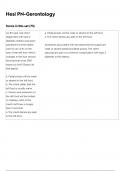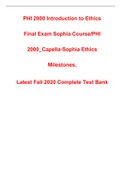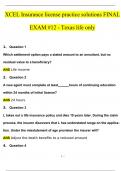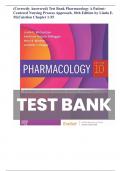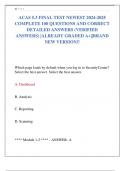Exam (elaborations)
HESI PN-GERONTOLOGY LATEST 2024 ACTUAL EXAM ALL 55 QUESTIONS AND CORRECT DETAILED ANSWERS WITH RATIONALES (VERIFIED ANSWERS) |ALREADY GRADED A+
- Course
- Institution
HESI PN-GERONTOLOGY LATEST 2024 ACTUAL EXAM ALL 55 QUESTIONS AND CORRECT DETAILED ANSWERS WITH RATIONALES (VERIFIED ANSWERS) |ALREADY GRADED A+
[Show more]
